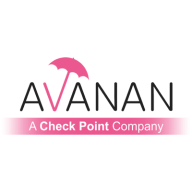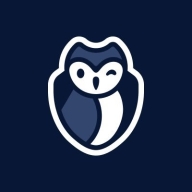


Avanan and GitGuardian Platform compete in the cybersecurity domain, specifically focusing on email and code repository security, respectively. Avanan seems to have the upper hand in real-time threat detection and comprehensive email protection, while GitGuardian excels in code repository security through effective secrets detection and integration capabilities.
Features: Avanan provides advanced anti-malware solutions for platforms like Office 365 and Box.com, offering standout detection components and real-time threat detection. Its cloud-based architecture ensures 24/7 protection. GitGuardian Platform specializes in safeguarding code repositories by detecting secrets such as passwords and API keys and integrates robustly with GitHub to aid internal monitoring. Its ability to alert developers instantly and automate incident workflows adds value to development environments.
Room for Improvement: Avanan could improve by expanding integrations with more SaaS offerings and reducing reliance on Active Directory. Enhanced handling of encrypted emails sent through third parties is also needed. GitGuardian Platform could benefit from better user onboarding and support for custom detectors. It also lacks direct integration with Azure DevOps and needs improved capabilities for historical scanning.
Ease of Deployment and Customer Service: Avanan is praised for easy deployment, especially in cloud-first environments, and excellent customer service. Its integration with existing email infrastructures like Office 365 makes deployment seamless. GitGuardian Platform's deployment is equally straightforward, although it heavily relies on public cloud services. Both products provide robust customer support, but GitGuardian could improve its integration of detailed, user-specific incident management to streamline operations.
Pricing and ROI: Avanan offers flexible SaaS-based pricing models, allowing organizations to scale based on project phases, making it ideal for dynamic environments. Its ROI is reflected in significant reductions in phishing-related incidents. GitGuardian’s pricing is reasonable for its features but can be costly for large-scale deployments. Nonetheless, its ability to quickly identify hidden risks justifies the investment, especially for organizations focused on code security. Both solutions deliver valuable returns by enhancing security infrastructures.
WordPress security can be tricky, and that's where Cloudflare can be absolutely helpful for small businesses.
For the small project I was working on, using the basic tier provided a huge improvement at zero cost.
I can certainly say that we have saved significant time and resources in terms of people and automation.
The majority of our incidents for critical detectors and important secret types are remediated automatically or proactively by developers through GitGuardian's notification system, without security team involvement.
This would help us address issues promptly, especially during unforeseen events like DDoS attacks.
Cloudflare does not offer hands-on technical support to fix customer problems but rather a self-service model.
The key factor is the language in which the support is offered, which, in this case, is in Thai.
It effectively helps us with credentials security and has been performing satisfactorily.
I would rate their technical support a nine out of ten.
I would rate the technical support as excellent.
It is a SaaS tool, but the fact that they have workloads deployed across the world proves that it is a highly scalable tool.
The tool offers very good performance, even during high-traffic periods.
I rate the solution’s scalability an eight out of ten.
In terms of scalability, I would rate it around a ten out of ten, as it handles all the repositories and commit activity we have.
I would rate it a ten out of ten for scalability.
Currently, what GitGuardian Platform is doing works effectively.
For DDoS protection, I would not recommend Cloudflare.
I rate the solution’s stability an eight out of ten.
The service is very stable with no impacts during high-traffic periods.
We set up a lot of the repository, so GitGuardian is a required check.
The SaaS platform has experienced two significant moments of downtime or instability in the last six months, requiring notices and retrospectives.
I would rate the stability of the GitGuardian Platform as excellent with no downtimes.
There's a need for improvement in areas like AI-based DDoS attacks and Layer 7 WAF features.
Despite these challenges, overall, Cloudflare remains the preferred solution compared to Azure, AWS CloudFront, and Google Cloud Armor.
Cloudflare should add more documentation and pricing to the cloud version.
Another thing that would be good to see is some more metrics on the usage of the GitGuardian pre-push hooks.
The self-healing activity by developers isn't reflected in the analytics, requiring us to collect this data ourselves.
We are looking for better metrics and audit data, wanting more features such as knowing which users are creating the most secrets or committing the most secrets, what repository, what directory, and who is not checking in secrets.
That's where Cloudflare shines for smaller businesses – it's ten times cheaper than Akamai.
I find it to be cheap.
I think they should consider reevaluating the pricing for support, as it can be quite high.
Overall, the secret detection sector is expensive, but we are happy with the value we get.
It's fairly priced, as it performs a lot of analysis and is a valuable tool.
The most valuable features of the solution are performance and security.
Techniques like minification and image compression reduce the size of assets, leading to better performance and faster user load times.
The solution has been able to compare it to the market, and I think the product has taken great strides in automating quite a bit of things, and they use a lot of AI.
One of the best features of the solution is the ability to use pre-push hooks.
A high number of our exposures are remediated by developers before security needs to step in, as the self-healing playbook process engages them automatically.
GitGuardian Platform performs the capability to detect secrets in real time exceptionally, as it activates from the commit and can detect it immediately.



Cloudflare is a highly-regarded Content Delivery Network (CDN) and a Distributed Denial-of-Service (DDoS) protection solution. The robust global connectivity cloud platform that is Cloudflare ensures users are able to connect to the Internet quickly, securely, and reliably. Cloudflare is one of the world's largest networks in the marketplace today. Using Cloudflare, businesses, educational entities, NGOs, vloggers, bloggers, and anyone else with an internet presence can experience more secure, faster websites and applications.
Currently, there are millions of Internet locations on Cloudflare, and the Cloudflare network
continues to grow every day by the thousands. The solution is able to fulfill the requests for
millions of websites seamlessly and serves on average 45 million HTTP requests per second.
Cloudflare has safe, secure data centers in close to 300 cities worldwide to ensure every
client request is filled as quickly as possible. It is Cloudflare’s edge network that makes this
possible by keeping content and other services as close to each client as possible, so the
information requests are always only seconds away.
Many organizations that work in democracy, civil society, human rights, or the arts are able to
access Cloudflare's highest levels of protection for free via Project Galileo. Additionally, official
election websites can be secured from hacking and fraud through Cloudflare’s Project
Athenian, also at no additional cost.
Cloudflare can also help organizations of all sizes develop a robust zero-trust strategy to
ensure the highest levels of productivity and profitability. Employees, stakeholders, and end users have a greater level of satisfaction and overall improved user experience, which can, in
turn, result in higher revenues and overall ROI. Zero-trust and BYOD (bring your own device)
access ensure end users and employees always have the best resources and technology
available to them at all times.
Cloudflare benefits
Cloudflare has many benefits. Some of its most valuable benefits include:
- Faster load times
- Robust DNS security
- Intuitive cloud Web Application Firewall (WAF)
- Free universal SSL
- Image enhancement
- Automatic browser caching
- Next-generation cloud load balancer
- Accelerated Mobile Pages (AMP)
- Rate limiting
- Minification
- Zero-trust capabilities
- Cost-effective
- Reduced carbon footprint
Reviews from real users
“Many websites require an SSL certificate because they sell stuff and want SSL. Cloudflare
comes with an SSL certificate built in. It's automatic. You sign yourself up for Cloudflare, and
an SSL certificate automatically protects your website. If you have a connection between your
website and your host, the server, Cloudflare, and the host, you don't necessarily need a
certificate.” Spencer M., Owner at Tech Exchange
“What I like best about Cloudflare is that my company can use it to trace and manage
applications and monitor traffic. The solution tells you if there's a spike in traffic. Cloudflare
also sends you a link to check your equipment and deployment and track it through peering,
so it's a valuable tool.” Daniel P., Network Engineer at Ufinet
“The most valuable feature of Cloudflare is the GUI. You are able to control the solution very
well through the interface. There is a lot of functionality that is embedded in the service.” PeerSpot user, Competence Center Manager at a tech services company
Avanan provides advanced email security, integrating with cloud services like Microsoft Office 365 to guard against phishing, malware, and ransomware while offering user-friendly, seamless, and comprehensive protection for all users.
Avanan leverages AI to detect and block threats before they reach inboxes, offering real-time protection, data leak prevention, and advanced email screening. The solution is easy to deploy and can be used effectively by both technical and non-technical users to secure email environments. Integrating seamlessly with Microsoft 365, it provides continuous protection, efficiently sandboxing suspicious emails and responding swiftly to emerging threats. While recognizing its performance in threat detection, users suggest improvements in AI logic to reduce false positives and enhance user experience.
What are the key features of Avanan?In industries like finance, healthcare, and education, Avanan's security measures are critically important for protecting sensitive information. Financial organizations benefit from advanced threat detection to safeguard transactions, while healthcare entities use robust security protocols to protect patient data. Educational institutions use Avanan to secure communications, ensuring the safety and privacy of students and staff.
GitGuardian is an advanced secrets security platform that strengthens Non-Human Identity security and ensures compliance with industry standards by detecting and managing secrets in development environments.
GitGuardian integrates Secrets Security and Secrets Observability, facilitating the detection of compromised secrets and managing legitimate secrets' lifecycle. Supporting over 450 types of secrets, the platform offers public monitoring for leaked data and employs honeytokens as an added defense. Trusted by over 600,000 developers, organizations such as Snowflake and ING rely on GitGuardian for robust secrets protection.
What features define GitGuardian?In sectors like healthcare and telecommunications, GitGuardian is implemented for detecting and managing the exposure of sensitive information in code repositories. Teams benefit from its ability to integrate with platforms such as GitHub, allowing for immediate alerts and efficient remediation of security risks, enhancing application security by safeguarding operational environments.
We monitor all Data Loss Prevention (DLP) reviews to prevent fraudulent reviews and keep review quality high. We do not post reviews by company employees or direct competitors. We validate each review for authenticity via cross-reference with LinkedIn, and personal follow-up with the reviewer when necessary.